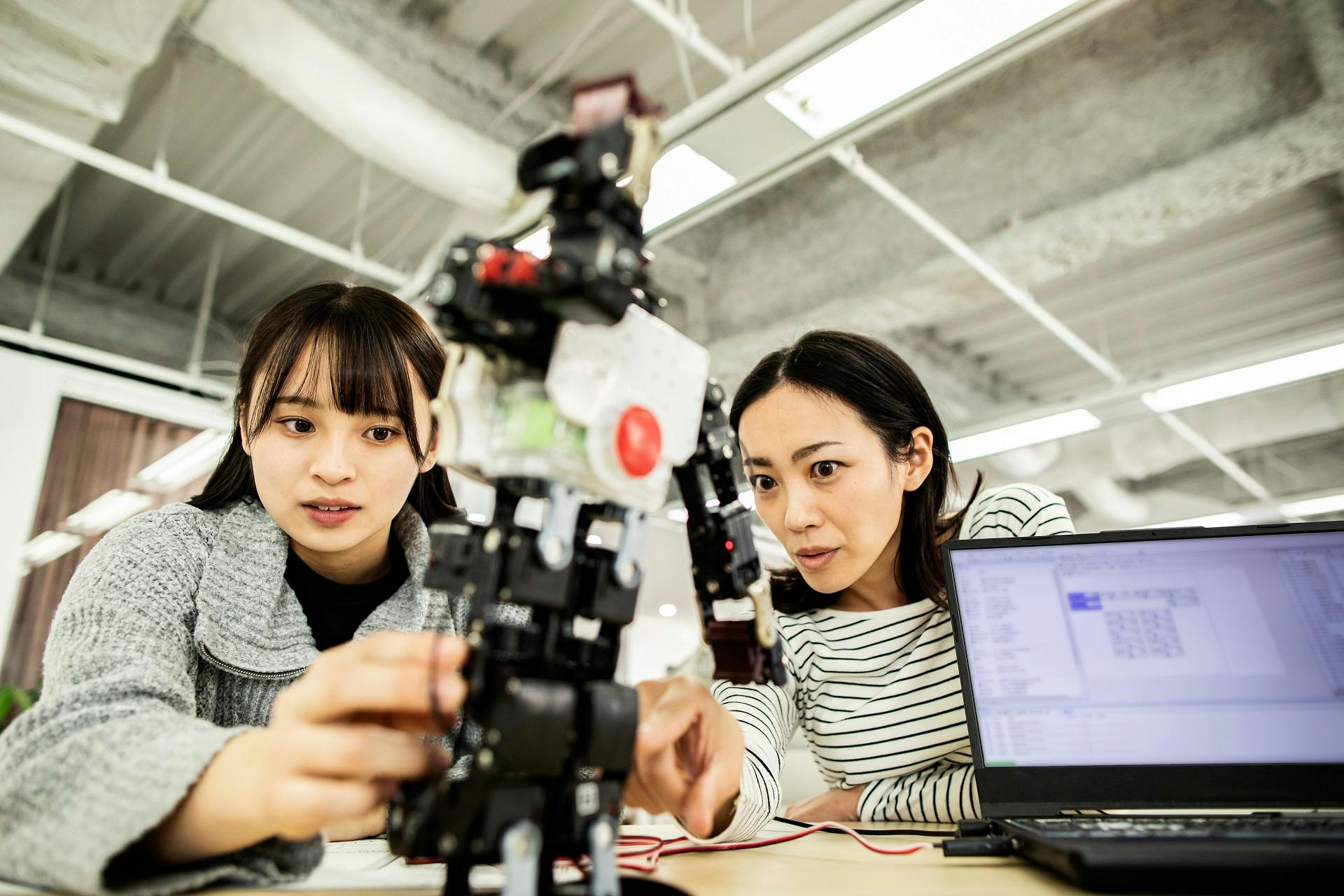Nayiri Keshishi, lecturer in learning development at the University of Surrey, explores several of the key trends that are changing the way graduates will work in the coming years
The world of work is constantly evolving, and over the past few years we have seen some significant changes in the way we work. From the rise of remote work to the increasing use of automation and artificial intelligence, there are several trends that are shaping the future of work. This article will explore some of these key trends and their impact.
1. Remote working
One of the biggest changes that we have seen in recent years is the rise of remote work. The COVID-19 pandemic has accelerated this trend, with many companies being forced to adopt remote work to keep their employees safe. However, even before the pandemic, remote work was becoming increasingly popular. Advances in technology have made it easier than ever for people to work from anywhere in the world.
Remote work offers a number of benefits for both employees and employers. For employees, it can offer greater flexibility, allowing them to work from home or from any convenient location. This can help to reduce stress and improve work-life balance. For employers, remote work can lead to cost savings, as they no longer need to maintain a physical office space. It can also lead to increased productivity, as employees are able to work in an environment that is most comfortable for them.1
As we move into the future, it is likely that remote work will become even more common. Many companies have continued with remote work or, more commonly, hybrid working, and most employees expect companies to adopt this way of working.
Many workers may need to switch careers entirely, as their current jobs become automated or redundant. Reskilling programs can help workers transition into new fields.
2. Flexible working arrangements
Flexible working includes not just remote work, but also flexible schedules, job sharing, and other arrangements that allow workers to have greater control over their work-life balance.
Flexible work arrangements can help to improve job satisfaction and reduce stress. They can also help to attract and retain top talent, particularly among younger workers who value work-life balance.2
As more and more companies adopt flexible work arrangements, we can expect to see a shift away from the traditional 9-to-5 workday. Instead, workers will have more control over their schedules, and may be able to work in a way that is most comfortable and productive for them.
3. The gig economy
Linked to more control over schedules, the gig economy refers to the growing number of workers who are self-employed or working on a freelance basis. The gig economy has been made possible by advances in technology, which have made it easier for people to connect with clients and customers online.
The gig economy offers workers greater flexibility and control over their work. It also allows them to pursue their passions and interests, rather than being tied to a single employer. However, it can also be unpredictable and insecure, with workers often lacking access to the same benefits and protections as traditional employees, such as health insurance and retirement plans.3
4. Automation and artificial intelligence
Another trend is the increasing use of automation and artificial intelligence (AI). Advances in technology have made it possible for machines to take on tasks that were previously performed by humans. This has led to fears that many jobs will be lost to automation, but it is also creating new opportunities.
Automation and AI can help to make businesses more efficient and productive. They can also help to reduce costs, as machines can perform tasks more quickly and accurately than humans. However, they are not a substitute for human workers. While machines can perform many tasks, they are not able to replicate the creativity, problem-solving skills, and emotional intelligence of humans.4
As automation and AI continue to advance, it is likely that they will become increasingly integrated into the workplace. This will create new job opportunities, particularly in the areas of robotics, AI, and software engineering. However, it will also require workers to develop new skills and adapt to new working practices.5

5. Upskilling and reskilling
As automation and AI become more prevalent, workers will need to develop new skills in order to remain relevant in the workforce. Upskilling and reskilling programs will become increasingly important, as workers seek to develop new skills that are in high demand.6
Additionally, many workers may need to switch careers entirely, as their current jobs become automated or redundant. Reskilling programs can help workers transition into new fields and develop the skills they need to succeed in their new careers.
6. Diversity, equity, and inclusion
As the workforce becomes increasingly diverse, companies will need to prioritise diversity, equity, and inclusion (DEI) to attract and retain top talent. Workers are increasingly looking for companies that are committed to creating a diverse and inclusive workplace, and companies that fail to prioritise DEI may find themselves at a disadvantage.
Additionally, research has shown that diverse teams are more innovative and productive and can lead to better business outcomes. As a result, companies that prioritise DEI are likely to have a competitive advantage in the future.7
In summary, although the world of work is changing, with new challenges comes fresh opportunities. By supporting students and graduates to develop the right knowledge and mindset, they can benefit from these opportunities and create an exciting future.
Notes
- What employees are saying about the future of remote work, McKinsey & Company, 2021.
- Examples of flexible working (Including their benefits), Indeed, 2023.
- What is the gig economy and what's the deal for gig workers?, World Economic Forum, 2021.
- Research Roundup: How Technology Is Transforming Work, Harvard Business Review, 2022.
- Workplace Changes Are Accelerating: Why And What Millennials Should Do About It, Forbes, 2018.
- These are the top 10 job skills of tomorrow – and how long it takes to learn them, World Economic Review, 2020.
- Diversity wins: How inclusion matters, McKinsey & Company, 2020.
Was this page useful?
Thank you for your feedback
